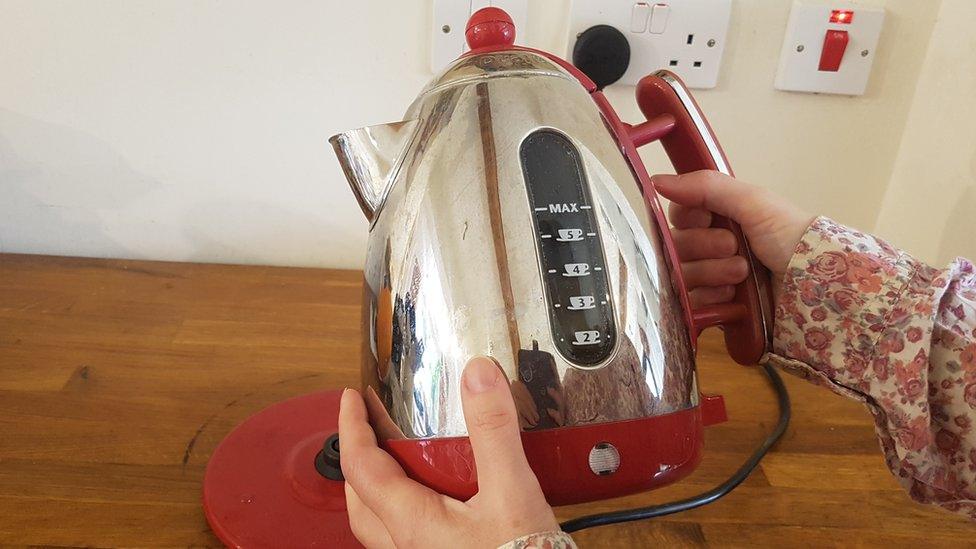The mobile phones you can take apart and repair yourself
- Published
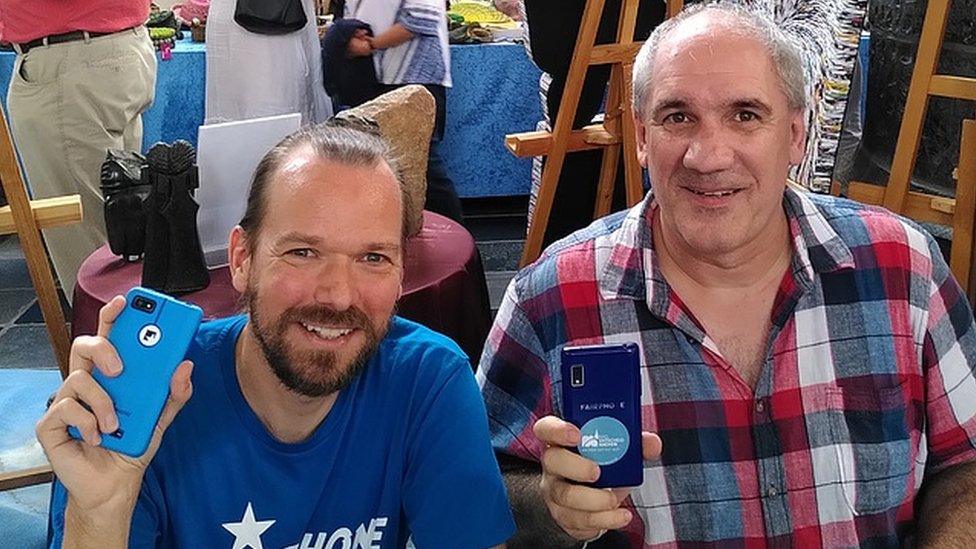
Urs Lesse (left) helps people fix their phones
Urs Lesse's expertise is in the field of political science, but he also has a more hands-on interest.
Every four weeks he gives up his time to help people fix their phones, in his home city of Aachen in the west of Germany.
But he can't help you with any make of phone - just one brand called Fairphone.
For the past eight years Mr Lesse has been an active member of an unpaid skills-sharing network of dedicated Fairphone users. He organises local community meetings and helps with repairs.
"I don't repair phones if I don't have to, but I have always been strongly motivated to encourage people to try to fix their own Fairphones by themselves," he says.
"It has always been a matter of passing on information and taking the inhibition away from the people to dare and open their phones," he explains.
With a modular design, Fairphone devices allow components such as the display screen, battery, USB ports and cameras to easily be exchanged, repaired and customised by their owners.
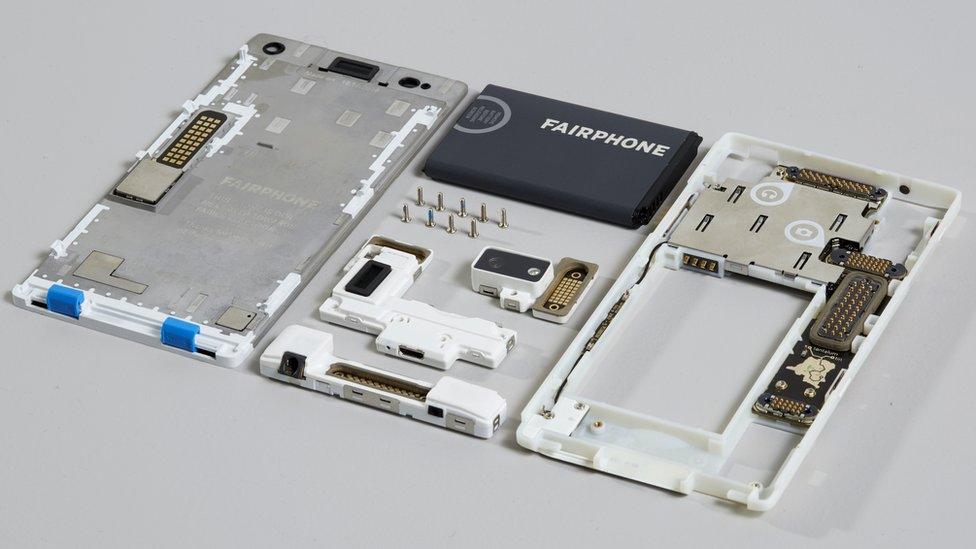
Fairphones are designed to be easily taken apart and fixed
"The Fairphone 2 could be taken apart in under two minutes," says Mr Lesse. "There were models where you didn't even need tools to take the display off in order to replace it yourself."
Fairphone customers range from programmers who have been drawn to the software possibilities of the phones, to consumers in search of a more sustainable product.
The firm started in 2013 and follows four principles: sourcing raw materials from non-conflict mining areas, and making products that are recyclable, long-lasting and repairable.
According to United Nations figures, a record 53.6m tonnes of electronic waste was generated worldwide in 2019, external - up 21% in just five year - with mobile phones making up a significant part of this. What's more, only 17% of electronic waste was recycled.
Fairphone argues that by making phones easy to fix they can have a longer working life, generating less waste and so having a positive impact on the environment.
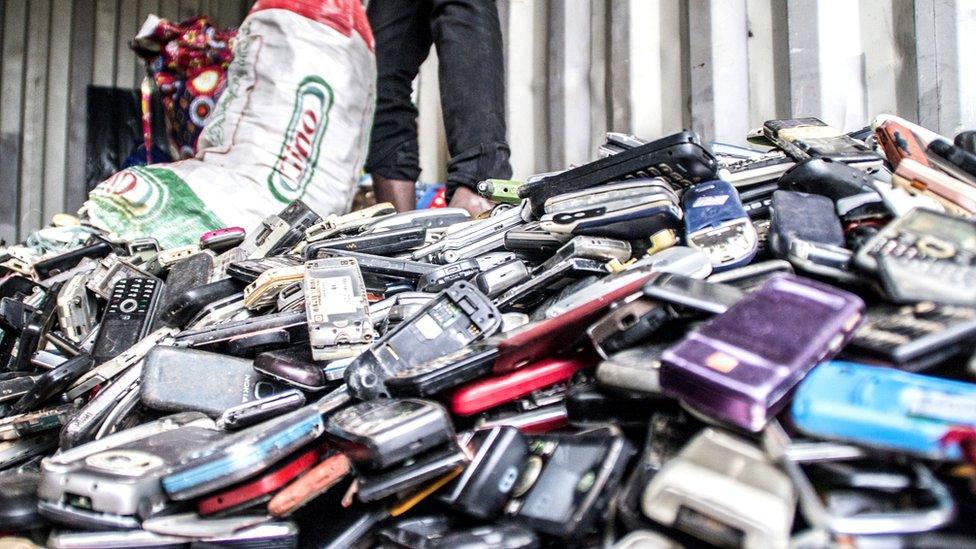
Only 17% of electronic waste was recycled in 2019, according to UN figures
"We know that by increasing the lifespan of a phone by at least two years, you get a 30% reduction in CO2 emissions," says Fairphone co-founder Miquel Ballester.
So far, the Dutch firm has sold some 400,000 devices - which means it is a very small player in the smartphone market.
"Fairphone is still a niche product, which can't be found in many stores, which is why the community network is important," says Mr Lesse.
Yet Fairphone has created waves within the industry, particularly in Germany, where it has earned a significant body of support.
Germany has presented Fairphone with numerous certifications and awards, most notably in 2016 the German Environmental Award, the most lucrative environmental prize in Europe.
Mr Ballester believes this government acclaim, as opposed to industry market recommendations, is one of the reasons Fairphone has gained such a sizeable following in Germany in comparison to other European markets.
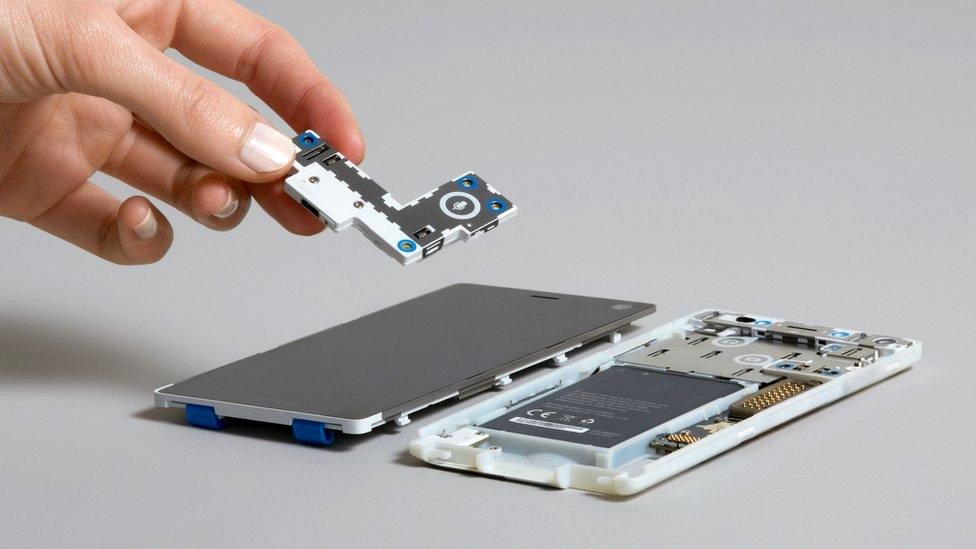
Fairphone has become popular in Germany after winning awards
Germans tend to be less attached to the status of big brands and are therefore more experimental with trying smaller European ones, the company says.
In Hamburg, Ingo Strauch, who also volunteers to help fellow users, says that many people mention data privacy and the easy use of the phone over its environmental benefits.
The firm's popularity in Germany could also be due to Germany's individual purchasing power. "Germany is a wealthy country. The willingness to reach deeper into your pocket for a seemingly fair product is therefore also higher," says Mr Lesse.
Fairphone says its priority is not just growth, it wants to change the way the industry works. "We don't want to necessarily become the biggest of the industry, but we want to become the most influential and make sure other manufacturers mirror some of the initiatives that we have," says Mr Ballester.
There is some evidence of a preference shift in wider society, says Prof Sigrid Kannengiesser, who specialises in media practices and sustainability at Bremen university.
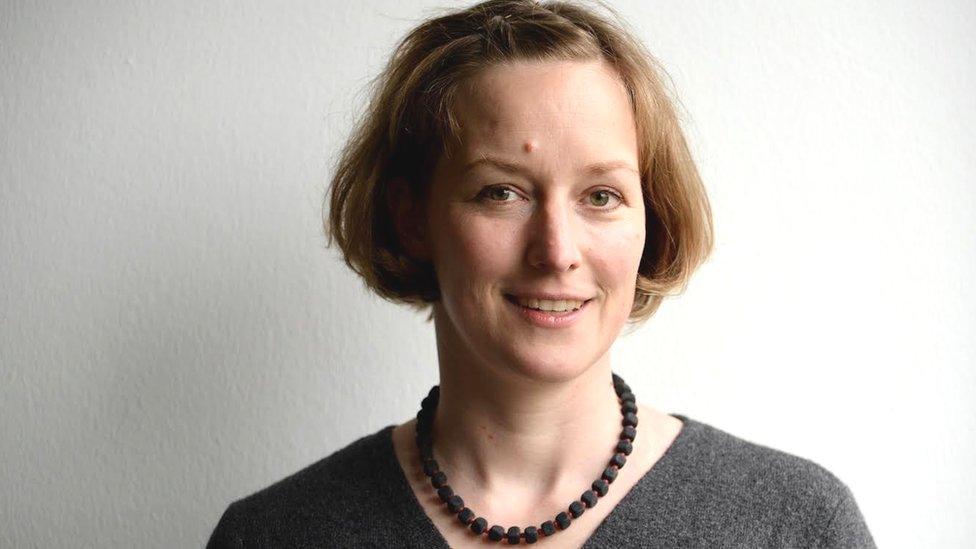
Sigrid Kannengiesser says a shift to more sustainable electronic devices is taking place
She points to the rise of repair cafés in western Europe and North America, and also to the recent announcement by the European Commission establishing a right to repair,
"Consumers, politicians but also some actors in the economy understand that our societies and the way of living of many people must become more sustainable," says Prof Kannengiesser.
The big players in the industry have been taking note. Last year Apple launched its "self service repair" initiative, giving customers access to Apple parts and tools.
"Self Service Repair is intended for individual technicians with the knowledge and experience to repair electronic devices," says the firm.
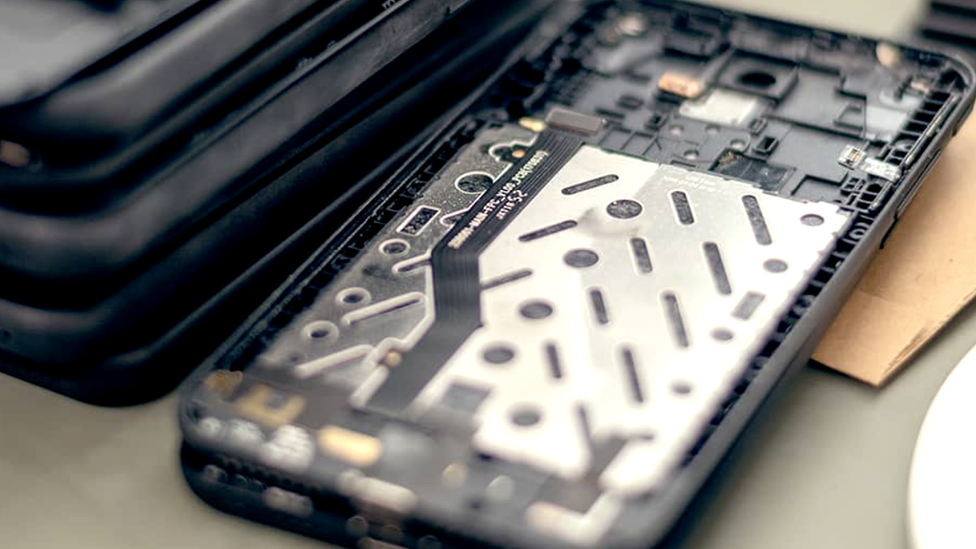
Germany's Shiftphones also makes a modular device
So how does Fairphone's latest model, the Fairphone 4, compare with other mobiles?
Chris Hall, of gadgets website Pocket-lint.com, is broadly positive: "The Fairphone 4 is a solid mid-range device, but it's unique selling point is sustainability, rather than stand-out performance in any other area.
"It's impressive that it offers some water resistance, but it's not protected to the same extent as flagship phones. That's a minor downside considering that this is a mid-range device.
"As such, while it offers reasonable performance, it's never going to be a power house and when it comes to sheer performance."


Fairphone is not the only phone manufacturers focusing on sustainability. Family-owned and German-based Shiftphones, founded in 2014, has also developed a modular sustainable smartphone.
Sales have been doubling every year in the past six years, but it too is a small player, having sold 70,000 devices.
Shiftphones founder and chief executive Samuel Waldeck, believes that collaboration would improve the two firms' ability to influence their bigger competitors.
"I think it would be a very important signal to work together, also for the rest of the market," he says.
"The whole industry is working against you... if you join forces you would have more units alone, which would change a lot."
Related topics
- Published31 October 2018
